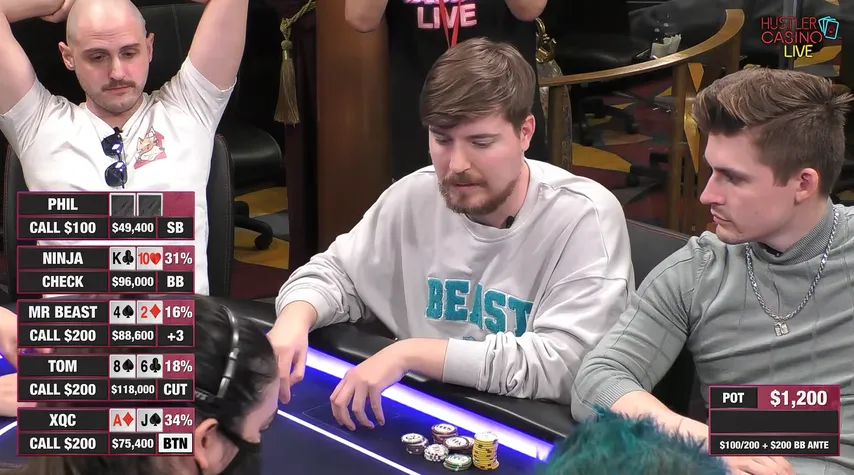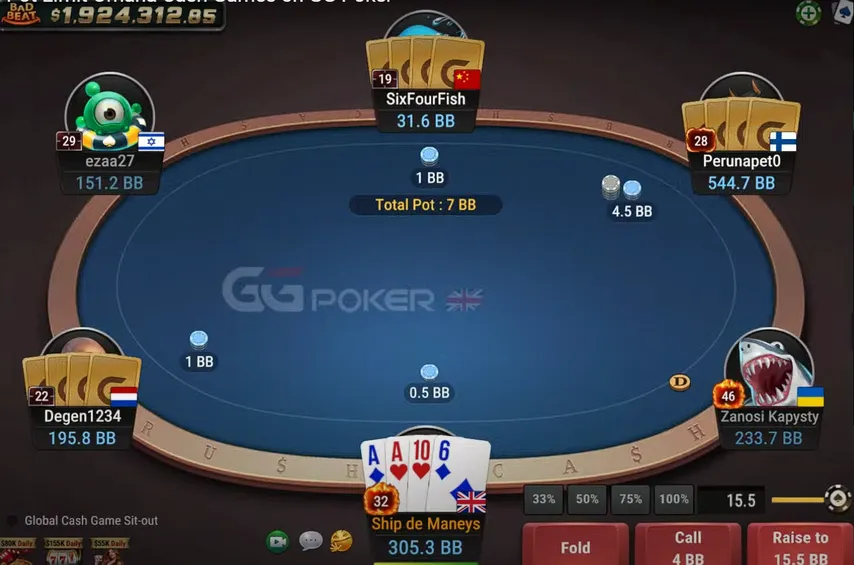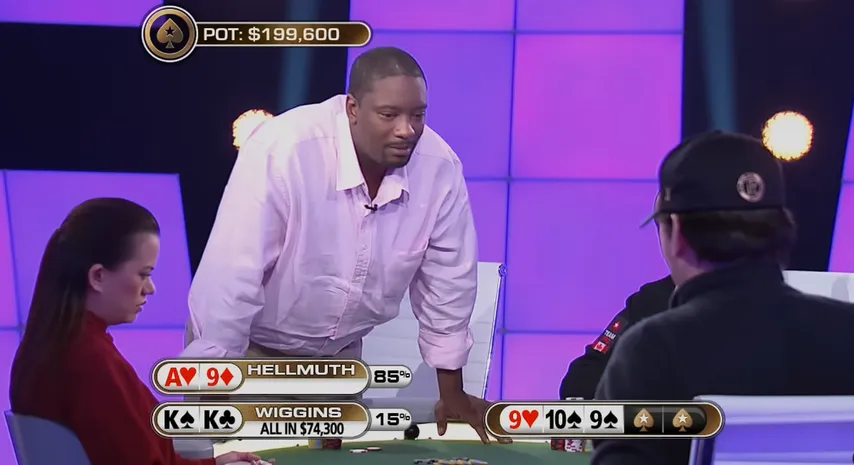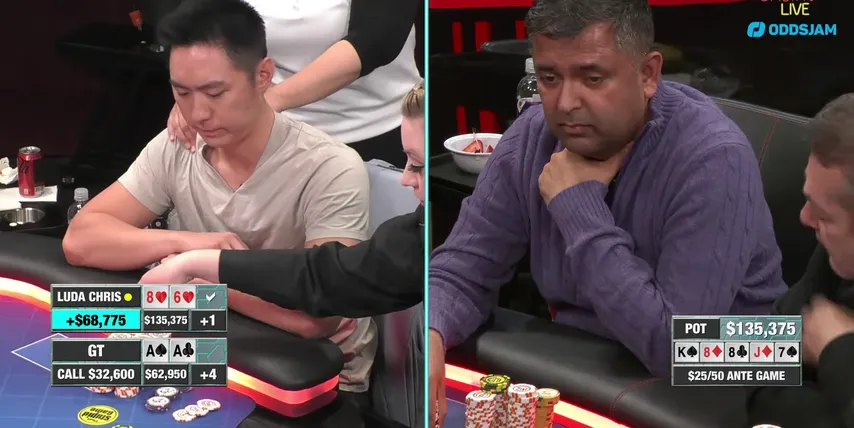We're going to teach you... to think like bad poker players. Not so that you repeat the same mistakes, but to understand their way of thinking in order to exploit their weaknesses and translate that into profit.
Imagine the type of player that has been playing poker for 30 years, but has never studied the game. He plays for fun with his friends.
They are not there to make a profit – but to win hands. That's the big difference.
The Most Common Mistakes of Bad Poker Players
1. Frequent Limping
Inexperienced players love to limp (calling the preflop unraised bet instead of opening with a raise).
They may limp as much as or even , and .
As a result, it can be very costly if, for example, they hit top pair with a bad kicker. They have top pair and thinks they are ahead and won't know how to get away from it. Not for a second do they think that they could be facing a better . They don't know how to fold top pair, and will call 3 streets with a poorly kicked .

This is an extremely common sight online, especially at lower limits where fun-loving players want flops, not help with their strategy. You can do a few things about it, like isolating players with raises. Pick your site, experiment at comfortable stakes, and test strategies against limpers.
- Increased first deposit bonus
- Increased rakeback and reloads
- Help with deposits and cashouts
- Access to private freerolls
- Round-the-clock support
2. What's Better than Limp? The Limp-Call!
Some new players become emotional with an agro player at the table who 3-bets a little too often, probably light sometimes. So, as they want to see the flop with speculative hands while having no idea of the real potential and the value of them.
They often will adjust their strategy and decide to limp-call preflop to be able to afford the aggressive player's raises.
But they probably won't adjust more than that. They won't assume that his opponent is perhaps light and that he cannot always have hands. Their plan is limp-call and then see what happens. At worst, it didn't cost too much and if they didn't hit the flop, they can abandon the hand.

Editor's Note: In PLO games, especially low and mid-stakes online, it's a lot more common to see limping and limp-calling.
Some players, perhaps like the one in this GGPoker cash game (above), feel better limping, then calling the raise they know is likely coming – rather than open it up themselves, then get 3-bet by the agro player at the table.
3. Overplaying Big Hands
New players will make very big raises with their big hands (QQ+).
They have an emotional attachment to these hands and don't want to get them cracked. It's understandable; they touch them too rarely to allow themselves to lose them. As much as they want to win the hands that average strength, they really don't want to lose holding premium cards.

Remember, these types of players aren't always there to make a profit. They are there to win hands and have maximum fun.
If they make a big raise from the blinds, that obviously means they have a big hand, not a bluff. They would never go for a squeeze, or venture into such a move with while telling themselves that they have good equity on the flop or something strategic.
4. Getting Married to Pocket Aces
They will also have an emotional attachment to . They won't be able to let go of them. To put it simply, they are married to . For better and for worse. Because of this, they risk losing big if their opponent hits 2 pair or better.
They often ignore the board texture or try to convince themselves that their opponent didn't just make their flush, or they don't complete the one-liner to a straight on the board.

5. You Won't Win 3 Times
Imagine that a fictional player is having a rough session. He had aces twice and they got cracked both times. Now, he will make a big raise of 8x preflop. Everyone will fold and he will turn over while saying, “I didn't want to risk getting them cracked a third time”.
Well, yes, you won the blinds and whatever else was out there, but likely lost EV in a big way.
6. They Play Passively
Some new players don't have a game plan. Neither preflop nor postflop.
Or rather yes, they have one, but it's not quite perfect.
Their plan: if I hit, I bet. If I don't hit, I check-fold. Although... if I hit my , I'm super strong. As a result, the fish risks paying you with -high on the flop.
This can be justified, but in this case, they don't tell themselves that they are in front or want to float, no. They tell themselves that they can hit it on the turn. After all, there are theoretically still three left in the deck.
That being said, if he bets, there is little chance that your bottom pair will be ahead.










